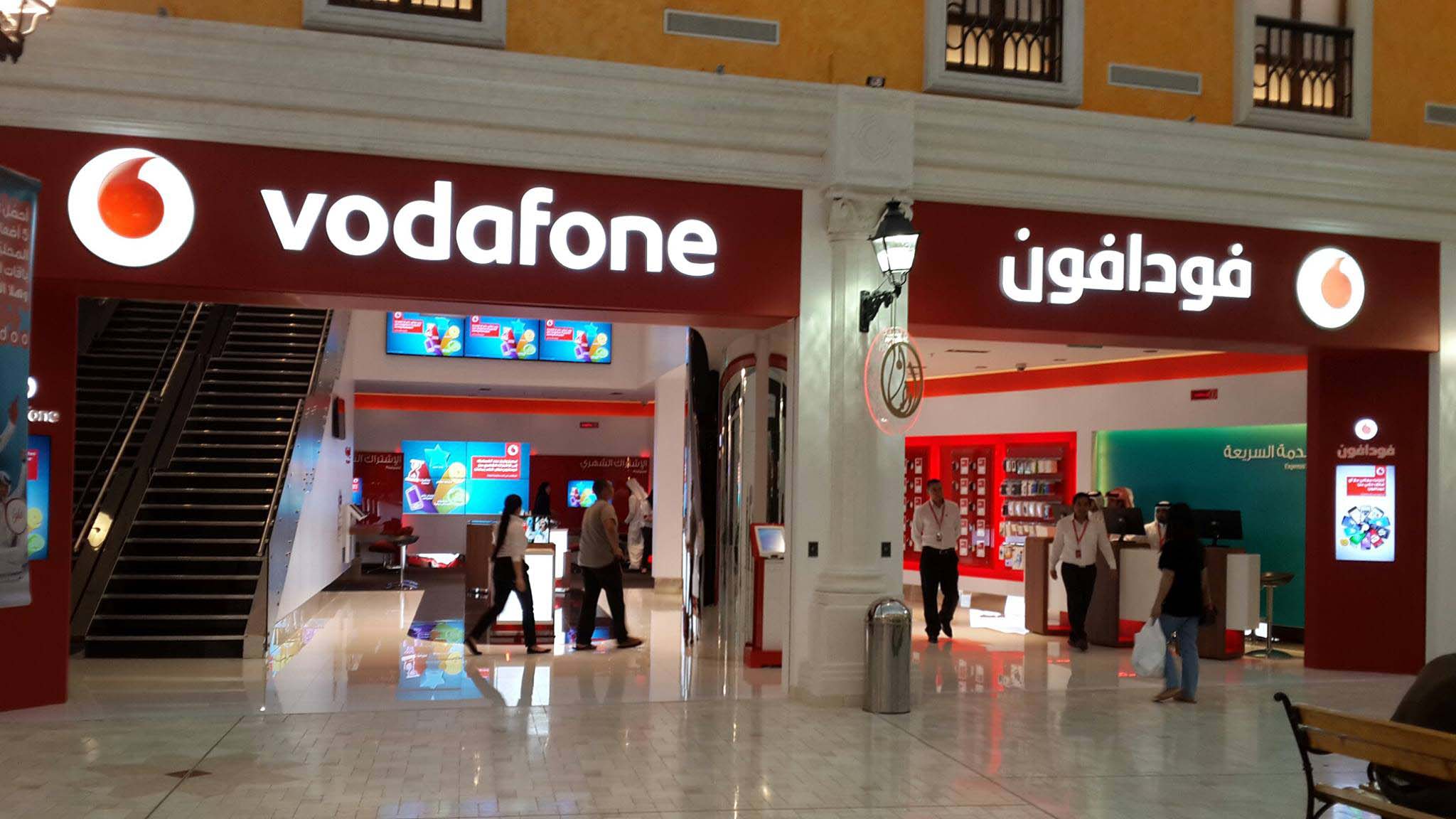
Telecommunications provider Vodafone Qatar has scrapped plans to buy the state-owned Qatar National Broadband Network (QNBN), raising questions about the future of the roll-out of Qatar’s high-speed fiber internet network.
In a bourse statement, Qatar’s number two mobile operator (based on the number of subscribers) confirmed that it would not proceed with its bid to buy 100 percent of QNBN’s market share.
The deal was reportedly worth some QR210 (US$57.7) million, based on 21 million shares at a value of QR10 ($2.75) per share.
Vodafone has first announced its intentions to acquire QNBN in early October, saying it had entered into a “non-binding agreement” with Information Communication Technology Holdings Q.S.C. (ICTH).
However, it was unclear if Vodafone would have paid market price, and at the time the operator stressed that the deal was conditional on “regulatory approvals and consents, completion of due diligence, agreement on the consideration payable, the arrangement and provision of funding to finance the acquisition and entry into of a definitive Share Purchase Agreement.”
While Vodafone has not yet given a reason for the change of heart, its latest statement said:
“Following a due diligence and negotiation process, the parties have determined not to proceed with the transaction.”
QNBN has contracts with Vodafone Qatar and former telecom monopoly Ooredoo to provide wholesale broadband capacity, but at the moment Vodafone Qatar does not own any shares in the company.
Fiber network
Since 2012, QNBN has been working to install a fiber network across Qatar and expects to complete construction within three years. However, progress has been slow and so far has covered only the West Bay area, the Msheireb Downtown Doha project, Barwa City and Barwa Commercial Avenue.

Previously, QNBN had pledged that 95 percent of Qatar’s homes and 100 percent of businesses should be able to use fiber by 2015.
Meanwhile, incumbent telecom provider Ooredoo Qatar has also been laying fiber infrastructure over the past few years, and has to date connected 175,000 homes and businesses.
Covering most of Doha, it has linked up districts including Al Hilal, Al Saad, Abu Hamour, Al Waab, Al Markhiya, Al Wakrah and Al Wakair as well as the Pearl, West Bay, Al Rayyan, Al Kharitiyat and Izghawa, according to its website.
Analysts had seen Vodafone’s attempted bid to buy QNBN a means to avoid the two rival operators unnecessarily duplicating infrastructure, with a single broadband network used by both in much of the country.
As both Ooredoo and QNBN have been installing fiber broadband concurrently, the companies had been in talks over who would preside over the network once the country is fully connected.
Last August, a QNBN spokesperson told Doha News that the company would possibly compensate Ooredoo for laying the infrastructure to avoid duplication of efforts and investments.
In a statement to Doha News today, QNBN said it would continue to roll-out a fiber network throughout Qatar.
“QNBN will continue to deploy a fiber optics broadband infrastructure network that promotes equal access to telecom providers and which helps the nation to achieve a knowledge based economy in line with Vision 2030, as per its mandate and supporting the four targets of Qatar’s National Broadband Plan,” a spokesman said.
Choice
According to Qatar’s National Broadband Plan, which was launched last year, residents should be able to choose between at least two competing broadband retail providers, regardless of whether they live in Doha or one of the further out towns like Al Khor or Al Rayyan, by 2016.
This date coincides with the scheduled completion of a national broadband network that is open to all of the country’s telecom providers and forms the basis of the government’s vision for broadband competition in Qatar.

The strategy criticized limited competition in Qatar’s fixed broadband market, saying it is significantly holding back the country’s economic development and diversification efforts.
Internet users generally only have access to a single service provider – either Ooredoo or Vodafone – in a given area.
Other targets in the plan, which has a 10-year agenda, and which aim to be completed by 2016, include:
- Ensuring 95 percent of households will have the ability to access affordable and high-quality broadband service of at least 100 Mbps for downloads and 50 Mbps for uploads;
- Making sure that businesses, schools, hospitals and government institutions will have high-quality access to at least 1 Gbps effective symmetrical speeds; and
- Expanding digital literacy to all of the mainstream population, in conjunction with guarantees of users’ digital privacy, protection of personal data and “freedom of opinion and expression.”
Thoughts?







